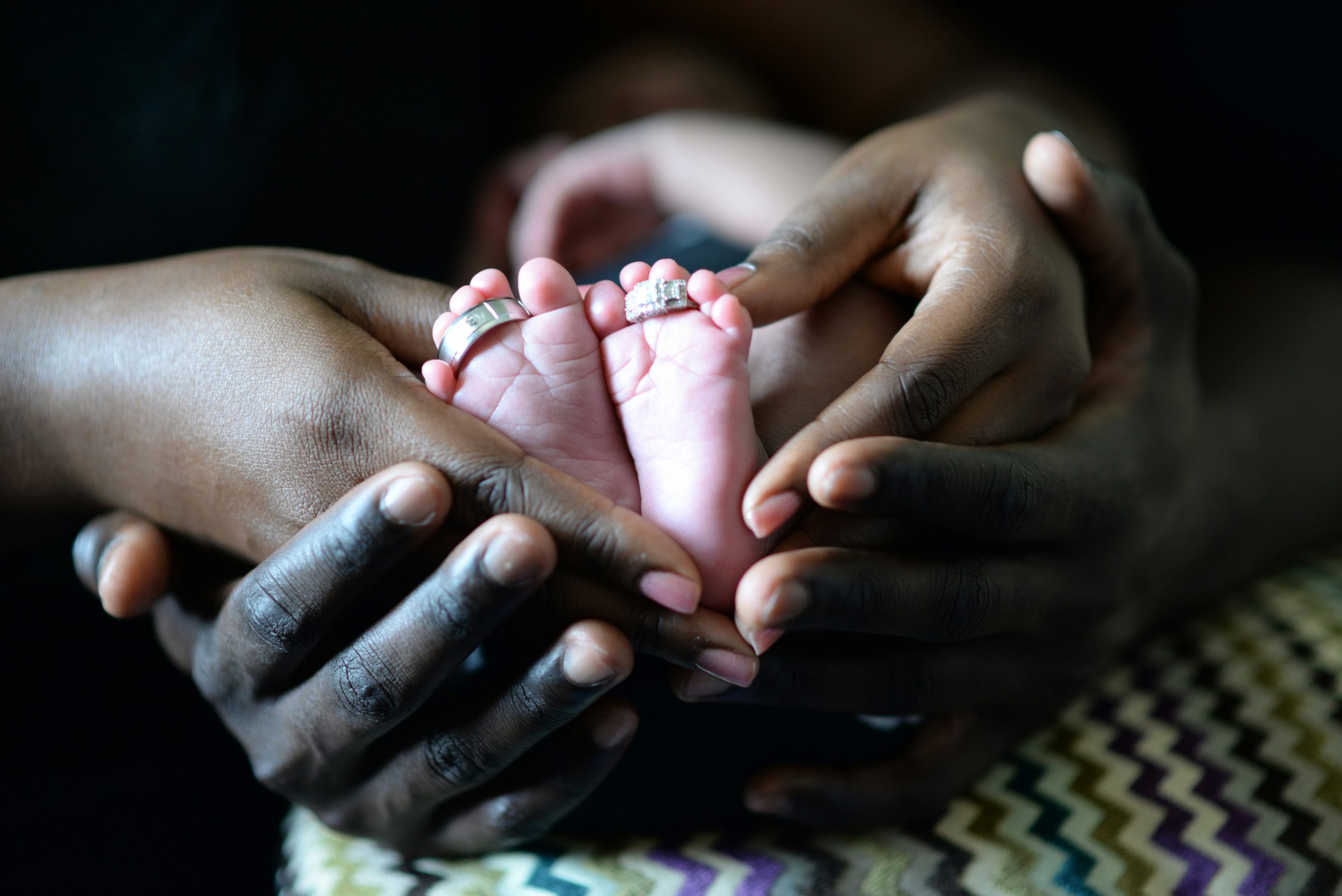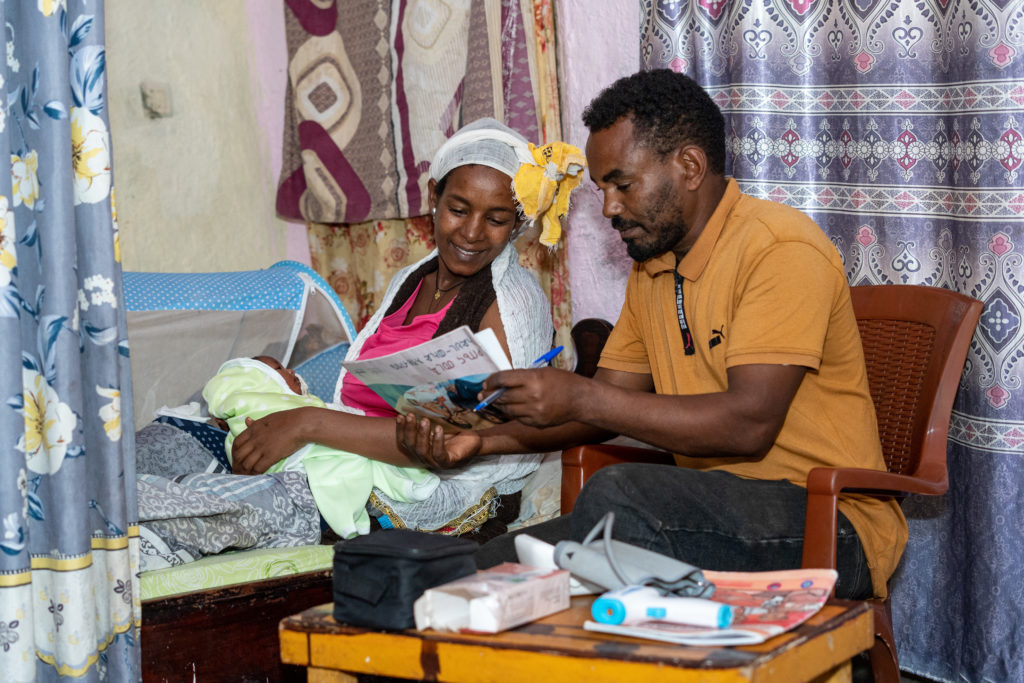Fighting stigma and changing laws to bring maternal mental health into the mainstream

Credit: Unsplash/Benji Aird
Maternal mental health conditions are a major global public health challenge. To mark World Health Day, WHO’s team in Ghana explain how they aim to use actionable recommendations and legislation amendments to safeguard the mental well-being of pregnant women and new mothers
By Zanele Mji
The birth of a child should be a joyous occasion, but every year millions of pregnant women and new mothers develop a mental health disorder that goes undiagnosed and untreated.
Around the world, about 10% of pregnant women and 13% of women who have just given birth experience a mental health problem such as postnatal depression, anxiety, postpartum psychosis, or post-traumatic stress disorder. In the U.S., one in four pregnancy-related deaths is attributed to maternal mental health issues.
The rates are even higher in developing countries, with 15.6% of women experiencing one of these disorders during pregnancy and 19.8% after childbirth.
And when pregnant women and new mothers experience mental health stress, their children’s well-being can suffer, too. According to the World Health Organization (WHO), a mother with poor mental health is more likely to struggle with developing an attachment to her newborn and may fail to properly care for her baby.
The integration of maternal mental health (MMH) into general healthcare is considered a crucial step to tackling this public health crisis, especially in low- and middle-income countries (LMICs). On average, the lowest-income nations have less than one mental health worker per 100,000 people, compared with about one per 2,000 in high-income countries.
In Ghana, where access to mental healthcare in general is a challenge, MMH conditions are highly prevalent, with up to half of pregnant women and postpartum mothers experiencing some form of perinatal depression.
In 2021, WHO partnered with the Ghanaian government and other stakeholders on a Special Initiative for Mental Health to expand access to high-quality, integrated mental health services under the country’s Universal Health Coverage roadmap. And now, WHO is focusing on bringing maternal mental healthcare into those services.
The organization recently published a policy brief and the findings of a study on MMH needs and services in Ghana, identifying key gaps, opportunities, and challenges in improving maternal mental healthcare in the country.
The resulting recommendations and interventions include specific MMH training for healthcare workers, routine perinatal screenings for signs of mental health stress, and education to reduce the societal stigma that surrounds mental health issues.
“The idea is to get funding to pilot some of the proposed interventions in six or seven facilities across the country,” said Dr Joana Ansong, Technical Officer for Noncommunicable Diseases at WHO Ghana. “Once we do that, we will be able to generate evidence to use as an advocacy tool to get the government to scale up those interventions to help more women.”
We spoke with Ansong and Dr Katherine Attoh, Technical Officer for Reproductive, Maternal, Newborn Child and Adolescent Health at WHO Ghana, about their research, their advocacy work, and their goal to make mental healthcare an essential part of maternity services, ensuring that no mother is left behind.
What are some of the obstacles that Ghanaian mothers face in receiving mental healthcare?
Attoh: As with most LMICs, mental healthcare is missing from Ghana’s maternal healthcare programs. We also lack data on maternal healthcare that can inform specific interventions.
Various things account for this. There’s the cultural factor, where people view mental health as a spiritual issue. Symptoms of mental illness are considered spiritual afflictions or curses that should be hidden from their community and treated by religious and spiritual leaders. Some people consider it just a normal phase of a woman’s postpartum period.
So, special care is not given to maternal mental health. But if we all agree that we should be providing holistic care for pregnant women and new mothers, then maternal healthcare should feature strongly.
Which MMH disorders are you working to integrate into Ghana’s healthcare system? What causes these conditions?
Attoh: They range from postpartum blues, where the person might just feel out of sorts, to anxiety and depression. And the depression can range from mild all the way to suicidal ideation. In very severe cases, pregnant women or new mothers can suffer psychosis.
The physiological changes and stresses that happen with pregnancy, labor, and delivery, as well as poor pregnancy outcomes and complications, all put people at risk of MMH conditions. Difficulty during labor, stillbirth, or early neonatal death are also high-risk factors. And then there are people who have preexisting mental health conditions that are exacerbated by pregnancy, labor, or delivery.
What did you learn from your analysis of maternal mental healthcare provision in Ghana?
Ansong: We realized that in many cases healthcare workers are inadequately trained and informed on maternal mental health, so their capacity to offer help is limited. We also found out that we don’t have the necessary screening tools for identifying patients in need of mental health services.
Ghana doesn’t have a clearly defined policy for maternal mental health. We have the Mental Health Act, but that only includes a small section on MMH services. So, we came up with addendums to existing policies that integrate MMH services into routine perinatal services – those are already strong in Ghana.
But we also learned that doing that requires us to create an enabling environment, which means significantly reducing stigma both in the communities and among healthcare workers.
What were some of the main recommendations you came up with?
Ansong: We have recommendations for the service providers, for the Mental Health Authority, for teaching hospitals, for subnational facilities and for professional bodies.
They include integrating routine screening and counseling services for MMH during antenatal, postnatal, and child welfare clinics; more training for healthcare workers including community-based volunteers; and prioritizing maternal mental health – as well as the mental health of healthcare workers who provide MMH services – in the review of the Mental Health Act.
We also target the non-health ministries, departments, and agencies, looking at the promotion of gender equity and psychosocial education. We even have recommendations for the national media, suggesting they run awareness creation campaigns through print, radio, television, and social media.
Religiosity is rife in Ghana and impacts the way people address mental health. So, we have interventions for spiritual healers, as well as civil society organizations and community-based health groups, mainly focused on advocacy and mobilizing resources to help women get access to MMH services.
What happens next with the policy brief and your recommendations?
Ansong: The Ghanaian Mental Health Authority has started a review process of the existing legislation for mental health. We are working with partners and stakeholders in civil society and healthcare to draft proposed amendments to the Mental Health Act that will legislate the provision of maternal mental healthcare as part of perinatal care.
Then the amendments have to go to Parliament, so we need to do a lot of advocacy to get them passed. That’s why when we completed the situational analysis, we disseminated it widely throughout the country. We went to radio stations and to communities because we wanted everyone, especially ordinary women, to appreciate the need for us to integrate these services into the healthcare system.
We want to rally women around this cause so that once we are able to complete the amendment process and it gets to Parliament, we will have the voices of the people to advocate for its passage.



